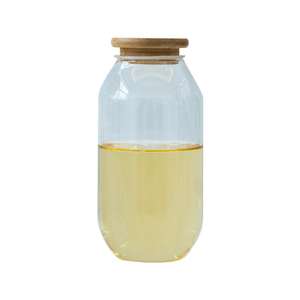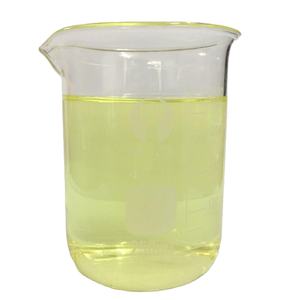Introduction to Passing Through Seal Treating Brokers: An Essential Advancement in Concrete Defense
Passing through seal curing representatives (PSCAs) have actually emerged as a transformative service in concrete technology, supplying double benefits of surface area sealing and interior hydration improvement. Unlike typical membrane-forming curing substances, PSCAs permeate deep right into the concrete matrix, reacting chemically with cost-free lime and other by-products to form insoluble crystalline structures. This reaction not just seals micro-cracks and capillary pores but likewise boosts compressive toughness and long-term sturdiness. As facilities needs expand for even more durable and sustainable materials, PSCAs are playing a progressively crucial role in prolonging the life span of concrete structures.
(Penetrating Seal Curing Agents)
Chemical Composition and Working Mechanism
Permeating seal curing agents are commonly made up of silicates– most generally lithium, sodium, or potassium silicates– along with reactive drivers and surfactants that improve penetration deepness and chemical reactivity. Upon application, these representatives penetrate the permeable framework of fresh or hardened concrete and respond with calcium hydroxide, a by-product of cement hydration, to form calcium silicate hydrate (C-S-H) gel and insoluble crystalline precipitates. These developments successfully obstruct water access, chloride ion infiltration, and carbonation, which are key sources of concrete degradation. The self-sealing ability of PSCAs makes them particularly valuable in aggressive settings such as aquatic structures, wastewater therapy plants, and bridge decks.
Advantages Over Typical Healing Techniques
Conventional treating methods, including damp burlap, ponding, and membrane-forming compounds, commonly fall brief in regards to performance, labor intensity, and environmental impact. On the other hand, permeating seal healing representatives use a much more effective, sturdy, and environment-friendly option. They do not evaporate or break down over time, eliminating the need for repeated applications. In addition, since they chemically bond with the concrete substrate, PSCAs offer long-term security without modifying surface visual appeals or slip resistance. Their usage also adds to power savings by lowering the need for repair and maintenance, consequently decreasing the lifecycle price of concrete frameworks.
Application Across Framework and Industrial Sectors
The versatility of permeating seal curing agents has actually resulted in their fostering across a variety of building and construction applications. In facilities projects such as freeways, airports, and passages, PSCAs help protect against freeze-thaw damages, deicing chemicals, and abrasion. In commercial flooring, they boost dust-proofing and wear resistance, boosting interior air high quality and minimizing maintenance downtime. Residential and industrial buildings gain from improved wetness resistance in foundations, basements, and parking garages. In addition, their compatibility with different types of concrete– including eco-friendly concrete with high fly ash or slag material– makes them a preferred option for sustainable building methods aiming to lower symbolized carbon.
Market Trends and Technical Dope
The worldwide market for penetrating seal treating representatives is broadening as a result of climbing demand for high-performance building and construction materials and more stringent regulatory criteria on building sturdiness and sustainability. Manufacturers are buying R&D to establish next-generation PSCAs with enhanced penetration deepness, faster reaction kinetics, and lowered application times. Advancements consist of crossbreed formulations that incorporate silicate-based chemistry with nano-silica or polymer-modified systems, using superior performance in extreme problems. Furthermore, smart shipment systems such as fogging and low-pressure spray innovations are being adopted to guarantee consistent coverage and optimum material application. Digital tools like wetness sensing units and predictive analytics are also being incorporated to check curing performance in real-time.
Environmental Influence and Sustainability Considerations
Penetrating seal curing agents are typically considered environmentally benign compared to solvent-based sealants and traditional treating membrane layers. Many formulas are water-based, non-flammable, and emit minimal volatile organic compounds (VOCs). Nevertheless, concerns remain pertaining to the sourcing of basic materials and the capacity for alkalinity-related results throughout manufacturing. To attend to these issues, researchers are discovering bio-based activators, recycled silicate resources, and low-carbon synthesis routes. Furthermore, the prolonged life span of treated concrete lowers the frequency of demolition and restoration, straightening with round economic climate concepts and adding to total carbon decrease in the developed setting.
Future Outlook: Smart Products and Integrated Solutions
( Penetrating Seal Curing Agents)
Looking ahead, the evolution of permeating seal curing agents will be driven by innovations in nanotechnology, clever materials, and electronic integration. The development of responsive PSCAs that can adapt to altering ecological conditions– such as humidity-triggered activation or self-healing behavior– can transform concrete upkeep approaches. Integration with Structure Information Modeling (BIM) and Internet of Points (IoT)-enabled surveillance systems will permit data-driven decisions on material performance and maintenance scheduling. As cities deal with enhancing environment pressures and maturing framework, the adoption of sophisticated treating innovations like PSCAs will be vital in making sure structural resilience and durability for future generations.
Supplier
TRUNNANO is a supplier of boron nitride with over 12 years of experience in nano-building energy conservation and nanotechnology development. It accepts payment via Credit Card, T/T, West Union and Paypal. Trunnano will ship the goods to customers overseas through FedEx, DHL, by air, or by sea. If you want to know more about potassium silicate, please feel free to contact us and send an inquiry(sales5@nanotrun.com).
Tags: concrete addtives, Penetrating Seal Curing Agents, Lithium-Based Curing Agent Seal Concrete Agent
All articles and pictures are from the Internet. If there are any copyright issues, please contact us in time to delete.
Inquiry us

